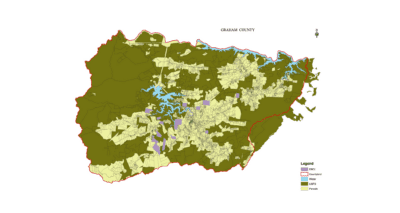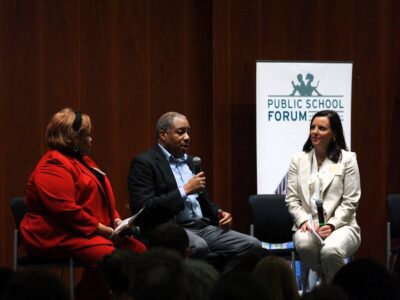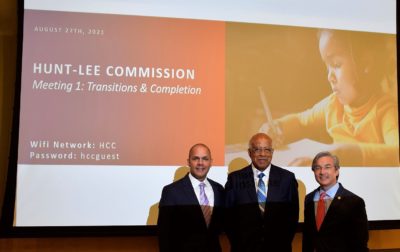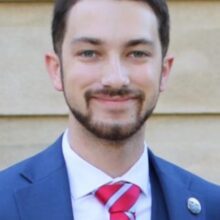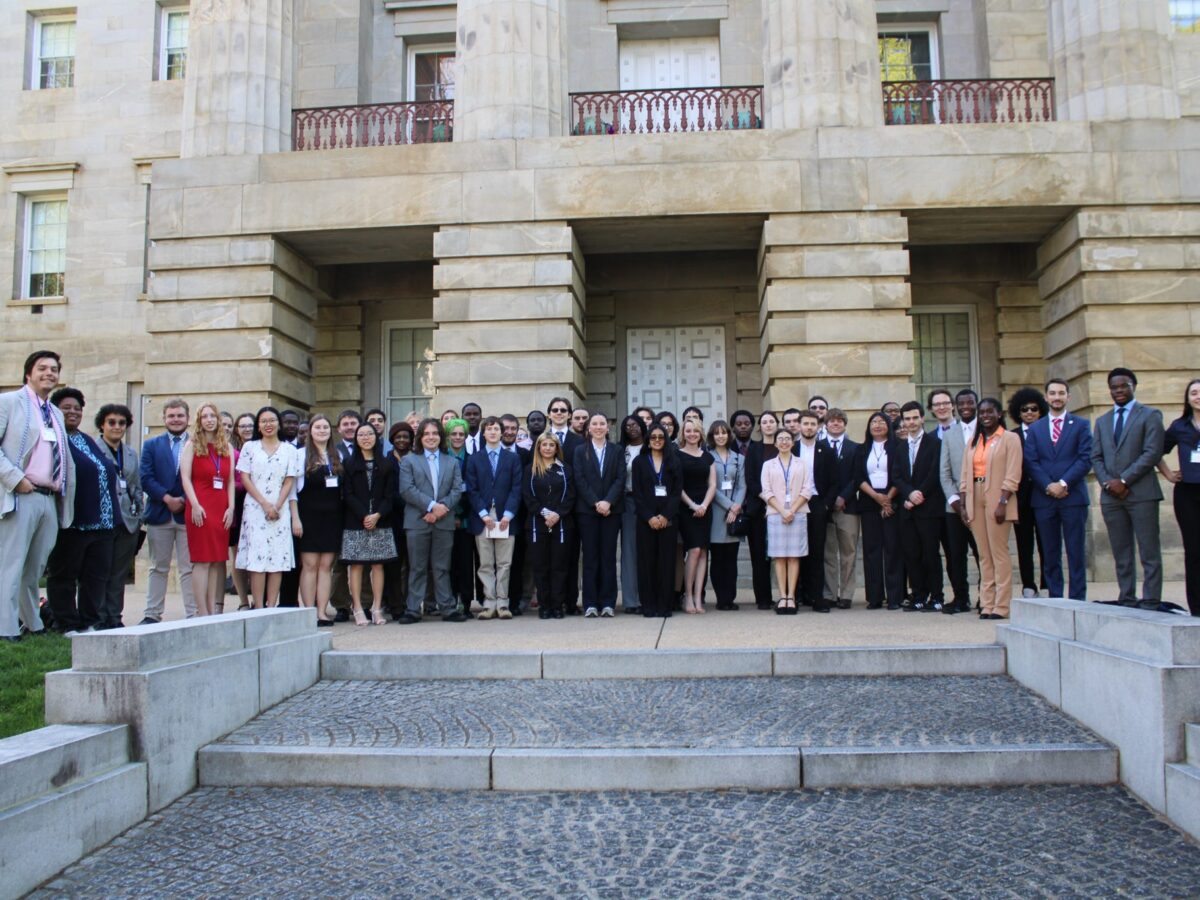
On a cool April afternoon in Raleigh, I stood on the steps of the North Carolina State Capitol, near the place where our state’s laws are debated and decided. In my left hand was a Bible; in my right was the weight of a promise. It was a surreal moment — one that connected me to a tradition stretching back to 1937, when a group of students decided they wanted a seat at the table in shaping the future of our state.
That moment wasn’t just about me. It was about every student who has stood where I stood — and every student who still could.
The civic engagement gap we can’t ignore
Across North Carolina, we face a problem that should worry all of us: Young people are participating less and less in bipartisan civic life. According to the 2024 North Carolina Civic Health Index, only 23% of residents report belonging to a civic or volunteer organization, and just 22.8% volunteered in the past year — one of the lowest rates in the nation.
Nationally, fewer than one in four young adults believe they have real influence over government decisions. And according to CIRCLE (Center for Information & Research on Civic Learning and Engagement), only 27% of young people say they regularly discuss political issues with someone who disagrees with them. In North Carolina, less than 15% of 18-24 year-olds reported attending a public meeting in the past year.
In an age where political discourse happens mostly in divisive online echo chambers, opportunities for civil, face-to-face debate and collaboration across political lines are shrinking.
The result? Students are graduating without the skills, networks, or experiences needed to engage constructively with people who think differently from them. This doesn’t just weaken our democracy in the abstract — it makes it harder for us to solve problems in our communities.
Related reads

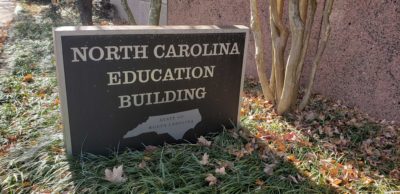
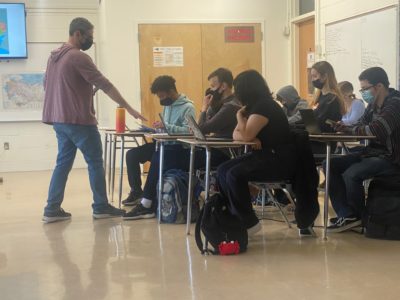
What NCSL brings to the table
That’s where the North Carolina Student Legislature (NCSL) comes in. Founded in 1937, NCSL is the nation’s oldest, active, nonpartisan, student-led legislative nonprofit organization. Our members — from UNC Charlotte to Western Carolina, and Campbell University to Belmont Abbey — write, debate, and vote on legislation just like the General Assembly. We practice real parliamentary procedure, form committees, and even interact directly with lawmakers and policy experts.
But here’s what makes NCSL unique: it’s a space where students from across the political spectrum come together not to score points, but to solve problems. We’ve debated everything from environmental policy to education reform — and while we don’t always agree, we always listen.
Why it’s different from other campus opportunities
For a lot of students, politics can feel as distant as the General Assembly floor in Raleigh. But NCSL bridges that gap in a way few organizations do. It’s the difference between watching a game from the stands and stepping onto the field. Instead of just reading about bills in a textbook, you’re drafting them. Instead of watching a debate on TV, you’re standing at the podium, answering real questions from your peers.
And while campus clubs often bring together students who already agree, NCSL is more like a model U.N. for North Carolina’s future leaders — where people from every background, every major, and every ideology work in the same room to figure out solutions.
![]() Sign up for the EdWeekly, a Friday roundup of the most important education news of the week.
Sign up for the EdWeekly, a Friday roundup of the most important education news of the week.
Why this matters for North Carolina
I’ve seen firsthand the transformation that happens when students step into these roles. They become more confident, more informed, and more willing to work with people they disagree with. They learn to see issues from multiple perspectives — a skill in short supply in today’s politics.
One of the most powerful things I’ve witnessed in NCSL happens not in the formal vote count, but in the conversations afterward. You’ll see students who argue fiercely on opposite sides of an issue sit down at lunch together and swap ideas for how a proposal could be improved. They don’t just debate to “win” — they debate to understand. That willingness to keep talking, even after disagreement, is what real civic engagement looks like.
A call to action
If North Carolina is going to thrive, we need leaders who know how to listen as well as they speak. We need leaders who understand that the best solutions often come from working across divides. And we need to start cultivating those leaders now, while they’re still in college.
If you’re a policymaker, educator, or community leader, I hope you’ll consider partnering with organizations like NCSL. Invite students to the table. Mentor them. Give them opportunities to see how policy works in practice.
And if you’re a student reading this — take that first step. Whether it’s joining NCSL or another civic group, your voice matters more than you realize.
On that April morning at the Capitol, as I looked out over a crowd of students, alumni, and state leaders, I realized something: The work we do in NCSL isn’t just about preparing for the future. It’s about shaping the present. And if we can keep doing that, year after year, then North Carolina’s future is in good hands.
Behind the Story
The author used Microsoft Copilot during his research for this article.
Recommended reading
